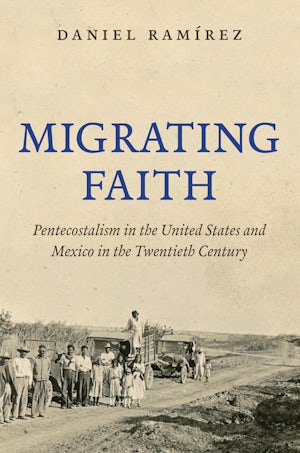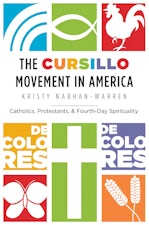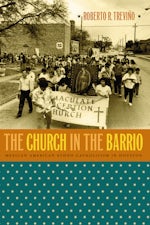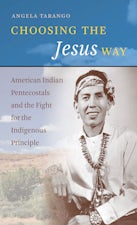Migrating Faith
Pentecostalism in the United States and Mexico in the Twentieth Century
By Daniel Ramírez
306 pp., 6.125 x 9.25, 4 halftones, 4 maps, 2 tables, appends., notes, bibl., index
-
Paperback ISBN: 978-1-4696-2406-8
Published: October 2015 -
E-book EPUB ISBN: 978-1-4696-2407-5
Published: September 2015 -
E-book PDF ISBN: 979-8-8908-8636-1
Published: September 2015
Buy this Book
- Paperback $37.50
- E-Book $19.99
For Professors:
Free E-Exam Copies
Awards & distinctions
Pneuma Book of the Year, Society for Pentecostal Studies
Ramírez argues that, because of the distance separating the transnational migratory circuits from domineering arbiters of religious and aesthetic orthodoxy in both the United States and Mexico, the region was fertile ground for the religious innovation by which working-class Pentecostals expanded and changed traditional options for practicing the faith. Giving special attention to individuals' and families' firsthand accounts and tracing how a vibrant religious music culture tied transnational communities together, Ramírez illuminates the interplay of migration, mobility, and musicality in Pentecostalism's global boom.
About the Author
Daniel Ramírez is associate professor of religion in the School of Arts and Humanities at Claremont Graduate University.
For more information about Daniel Ramírez, visit
the
Author
Page.
Reviews
“Those interested in Pentecostal religious expression in other migrant ethnic groups and in African American evangelicalism will find the questions posed here relevant. . . . Highly recommended.”--Choice
“A study that offers fresh interpretations of Latino/a religious studies and American religions history.”--Journal of American History
“Puts forth a radical rethinking of the 1930s repatriation of Mexican immigrants and their families, which is generally depicted as a xenophobic tragedy. . . . Essential reading for graduate students in Mexican religious history, borderlands, and Latino history.”--Hispanic American Historical Review
“This highly recommended book will enrich the curricula of American religious history, Mexican religious history, borderlands history and is appropriate for undergraduate and graduate readers.”--Perspectivas
“Ramirez has not only given us a history of the origins of the Pentecostal movement along the U.S.-Mexican border, he has also modeled a narrative form that gives voice to individuals and groups who are misunderstood in most historical studies when they are not entirely passed over.”--Fides et Historia
“His layered presentation of complex ideologies, theories, and information adds a multidimensional work to the field.”--H-Net Reviews




